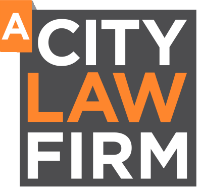
Firstly, why do we say it’s more essential for AI companies? They often gather sensitive data and in vast amounts, which will often be personal, financial or proprietary. This makes them prime targets for cyber-attacks. Plus, any compromise in the integrity of AI systems can have far-reaching consequences. A compromise can affect not just the company or the data’s owners, but public trust in the use of such systems, driving back innovation.
Policy & Process Requirements:
Data Protection Compliance
The Data Protection Act 2018 ‘GDPR’ in the UK is an essential regulation to carefully consider. Specify how personal data is collected, processed, and stored within your AI systems and how you can delete this as required. This policy should accompany and complement your data protection policies. You should have an internal process that monitors, reviews and is practically applicable for the processing, storing, security and deletion of data protection. Also, consideration should be given for your customer base, ie whose data are you collecting and why, do other DPAs apply like CCPA, EUGDPR, EU AI ACT
Access Control
Implement stringent access control measures to restrict unauthorised access to sensitive information. This includes user authentication protocols, role-based access controls, and regular access reviews. Restrict employee and consultant’s access internally to areas and data required only for their specific role.. Ensure there is a process to update IT systems when staff leave and all staff access is reviewed regularly.
Secondly, utilise encryption techniques to protect data both in transit and at rest. This adds an extra layer of security, especially when handling confidential client information.
Firewall and Network Security
Deploy robust firewall solutions to monitor and control incoming and outgoing network traffic. Regularly update firewall configurations to adapt to evolving cyber threats. It is advisable to seek advice from security experts to ensign a secure architecture, include DDOS protection as well, this may be separate to firewalls
Regular Security Audits
Conduct periodic security audits and vulnerability assessments to identify and mitigate potential security loopholes. This proactive approach helps you stay ahead of cyber threats. Technology evolves, as do risks and cyber threats, so constant updates and assessments are vital.
Employee Training and Awareness
Educate your staff on cyber security best practices and the importance of adhering to your outlined company policies. Training programs should cover topics such as phishing awareness, password hygiene, and incident response procedures. Document these policies and ensure that your staff and consultants fully comply. Review your employment contracts and staff handbook to make sure these terms are incorporated as part of your overall structure and staff can be held accountable. On exit of staff make sure you have instilled they maintain confidentiality, confirm data is deleted, and access is restricted.
Incident Response Plan
Develop a comprehensive incident response plan outlining procedures to be followed in the event of a security breach. This should include steps for containment, investigation, remediation, and communication with stakeholders. It is important to ensure that this is comprehensive but also practical, in that the company can actually deploy these solutions. You could run a mock test and see how the systems and your team react.
Contractual Obligations
Define clear contractual obligations regarding data security and privacy in agreements with clients, customers, and other partners and stakeholders. Specify liability provisions in case of data breaches or non-compliance. Robust terms are important, but they must be made transparent around who is liable throughout all of the documentation, as any ambiguity leads you open to risk.
Regulatory Compliance Monitoring
Stay abreast of regulatory changes and ensure ongoing compliance with relevant laws and industry standards in the areas you operate. This may involve appointing a dedicated compliance officer or seeking legal counsel to navigate complex regulatory landscapes. This may not be possible for smaller businesses so a dedicated member of management or a founder should be nominated to oversee this.
Continuous Improvement
Cyber security is an ongoing process. Continuously monitor and update your policies and procedures, as well as your systems and technology to adapt to emerging threats and technological advancements.
Conclusion
We would recommend a full review and audit of your key documentation to ensure that cyber-security and data protection runs through all of them systematically. Any contracts or terms or policies should complement each other as any ambiguity or inconsistency leaves you exposed.
A solicitor will not only review and revise these documents, but should help negotiate more robust terms to protect you and the business. This will also ensure that any insurance in place remains valid and you are fully aware of any implications and requirements.
Crafting robust cyber security policies is essential for AI technology businesses to safeguard their operations and maintain client trust. By incorporating legal expertise into the process, businesses can ensure compliance with regulations and effectively mitigate cyber risks. Remember, investing in cyber security today can save you from costly legal repercussions tomorrow.
In the meantime, if you can’t wait, you can contact us directly for impartial advice by visiting our website https://www.acitylawfirm.com/ or emailing [email protected]
A City Law Firm Limited is a leading entrepreneurial law firm in the city of London, with a dynamic and diverse team of lawyers. It was awarded most innovative law firm, London 2016 and Business Law firm 2017. They specialise in start-up business law, the tech industry, IP and investment.

























